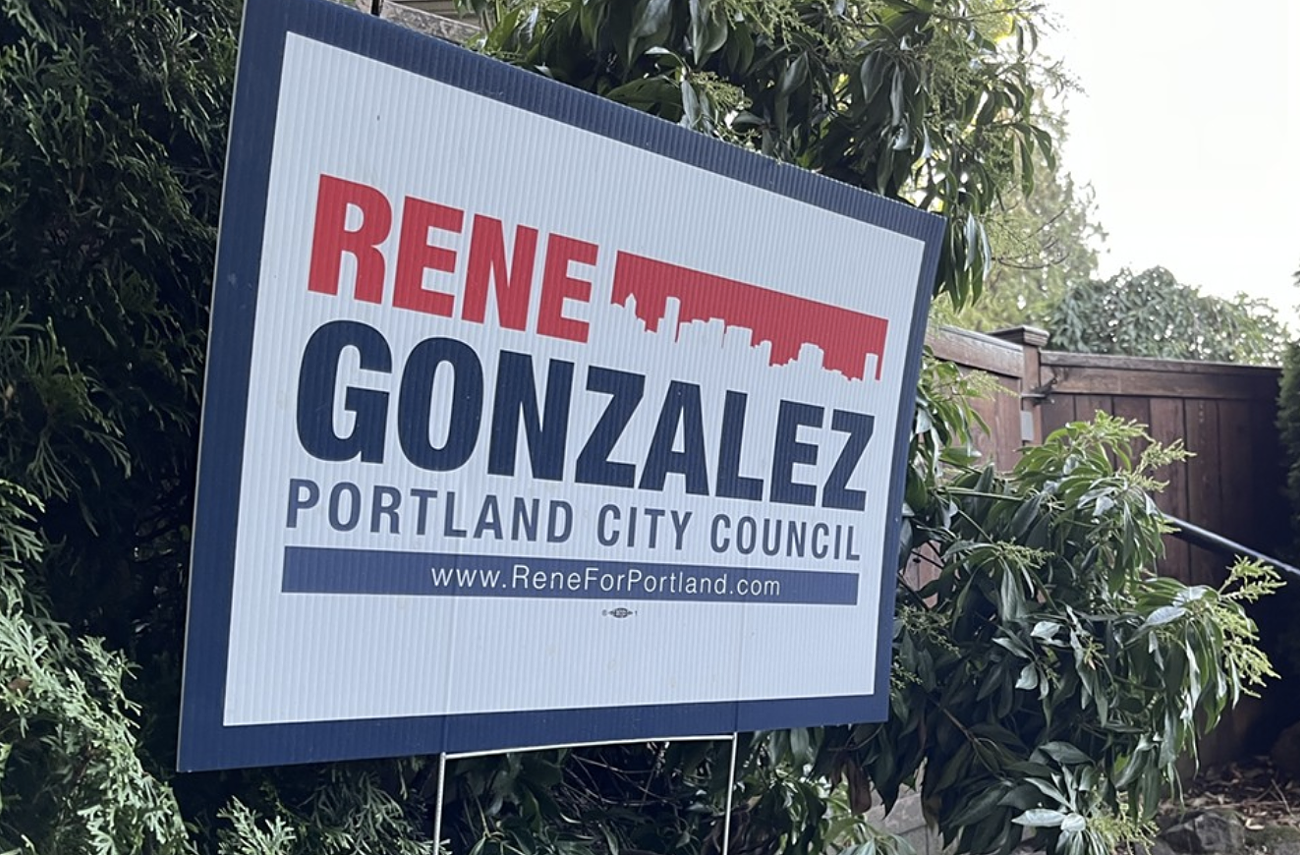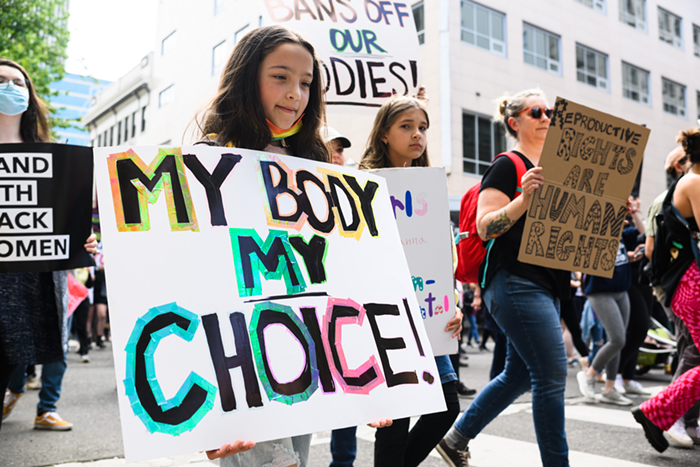An investigation by the City Auditor’s office found no violations of campaign finance regulations by both City Council candidate Rene Gonzalez's campaign and one of his largest donors.
The complaint centers on a deal between Schnitzer Property Management LLC and the Gonzalez campaign, in which the management company—owned by Gonzalez donor Jordan Schnitzer—gave Gonzalez a hefty discount on rent for his campaign headquarters. The downtown Portland office had been listed online by Schnitzer at $6,900 per month, but Gonzalez’s campaign was allowed to pay just $250 a month to lease the space.
This deal was initially flagged by the Small Donor Elections office, which moderates a city program that matches candidates' campaign contributions with public dollars if the candidate pledges to accept small donations throughout an election cycle. Specifically, participating candidates must commit to not accepting donations over $250 from a single donor per election.
The Small Donor Elections program imposed a $77,140 fine against Gonzalez's campaign in September, accusing Gonzalez of accepting a $33,250 donation from Schnitzer in the form of deeply discounted rent. The campaign appealed that decision to a state administrative judge, who revoked the hefty fine last week, agreeing with the campaign that a monthly rate of $250 for the office space was fair market rate due to the undesirable nature of the ground-floor office building in downtown Portland.
This latest judgement examines a slightly different aspect of the deal. The investigation, sparked by a complaint filed by James Ofsink of progressive nonprofit Portland Forward, centered on whether or not the Gonzalez campaign violated city campaign finance regulations (which are separate from Small Donor Elections rules). In particular, the complaint alleged Gonzalez violated the city's rules that a candidate must list their top donors on their campaign website and social media platforms, since he did not list Schnitzer Property Management LLC as a top donor.
But, it appears the Elections Office—which is overseen by the City Auditor—defines donations differently than the Small Donor Elections office. According to the determination letter penned by Elections Officer Louise Hansen, the elections office doesn't consider "rooms... for use by a candidate committee free or at a reduced charge" to be a campaign contribution. That means it doesn't see a $33,250-reduction in rent from Schnitzer a donation.
The Elections Office also dismissed a complaint filed against Schnitzer by Ofsink, which accused Schnitzer of not reporting a donation that exceeds city campaign limits of $500 per donor for the deeply discounted office space. Again, Hansen writes that because her office doesn't consider discounted rooms campaign donations, the rental rate is not a violation. The decisions comes a week before Election Day.
This ruling follows another made by the Elections Office in mid-October, on the heels of a similar investigation into Schnitzer Property Management LLC into whether the rented office space donation violated the city's campaign contribution limits. In that decision, the Elections Office found that the rented room did not violate the donation limit, but the free parking spots given to the Gonzalez campaign did. Unlike "rooms," the Elections Office said is sees "parking costs" included in the definition of a campaign contribution. Because of this violation, the Gonzalez campaign must pay the city a $5,520 penalty by November 21. Update, Nov 23: The Elections Office chose to reconsider and drop this October penalty after an administrative law judge reversed the Small Donor Elections penalty against Gonzalez' campaign. In a November 23 letter, the office writes that due to the legal ruling, "the evidence presently available is insufficient to determine whether in-kind parking contributions were received by the campaign."



















